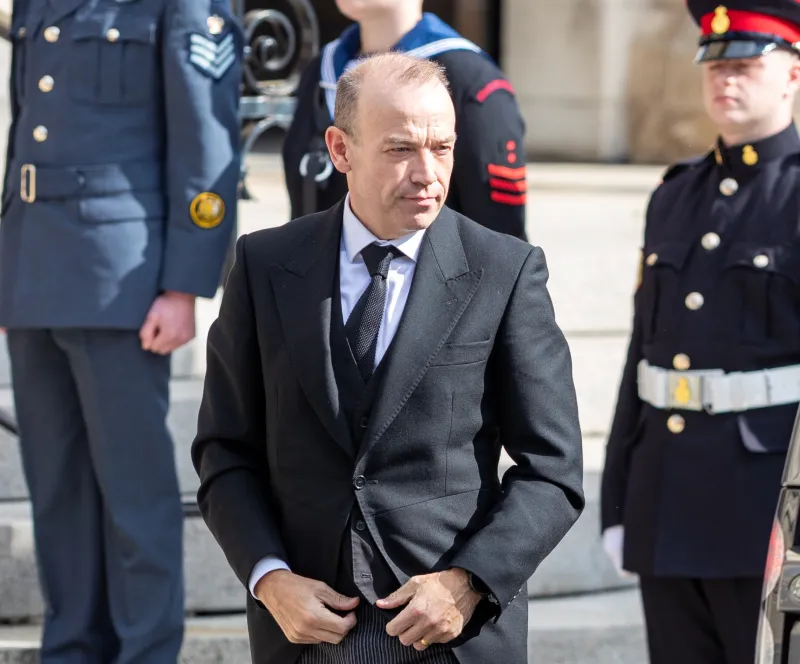
Catholic to lead Northern Ireland’s government for first time in history
 Newly appointed Northern Ireland First Minister Michelle O’Neill made history Feb. 3, 2024, by becoming the first Catholic and first Irish nationalist to lead the country’s government in its 103 years of existence. / Credit: Photo courtesy of Sinn Féin/Wikimedia, CC BY 2.0 DEED
Newly appointed Northern Ireland First Minister Michelle O’Neill made history Feb. 3, 2024, by becoming the first Catholic and first Irish nationalist to lead the country’s government in its 103 years of existence. / Credit: Photo courtesy of Sinn Féin/Wikimedia, CC BY 2.0 DEED
Washington, D.C. Newsroom, Feb 5, 2024 / 14:40 pm (CNA).
Newly appointed Northern Ireland First Minister Michelle O’Neill made history over the weekend by becoming the first Catholic and first Irish nationalist to lead the country’s government in its 103 years of existence.
“As an Irish republican, I pledge cooperation and genuine honest effort with those colleagues who are British, of a unionist tradition, and who cherish the Union,” O’Neill, who is a member of the Irish nationalist and democratic socialist party Sinn Féin, said in an address to the Northern Ireland Assembly on Saturday after assuming the position of first minister.
“This is an assembly for all — Catholic, Protestant, and dissenter,” O’Neill added. “Despite our different outlooks and views on the future constitutional position, the public rightly demands that we cooperate, deliver, and work together. We must build trust and confidence in our ability to do that.”
Sinn Féin, which has historical ties to the Provisional Irish Republican Army, officially supports the reunification of the Republic of Ireland and Northern Ireland, which were separated in 1921 through a peace treaty between Irish revolutionaries and the United Kingdom. The treaty ended the 1919–1921 Irish war for independence from the United Kingdom.
Northern Ireland is currently part of the United Kingdom. Yet, per the Good Friday Agreement, which was signed in 1998, Northern Ireland and the Republic of Ireland can reunite as one country if the majority of both countries vote in favor of such a change via referenda.
The Good Friday Agreement, which received overwhelming support in the Republic of Ireland and Northern Ireland, brought an end to “The Troubles,” which was a 30-year violent conflict between Irish republicans and Ulster loyalists. The violence stemmed from disputes over the status of Northern Ireland and allegations of discrimination against Catholics through political gerrymandering, de facto segregation from housing policies, and workplace hiring practices that prevented Catholics from working in major industries that were mostly controlled by Protestants.
Despite this historical division, O’Neill’s address mostly focused on domestic problems rather than Irish reunification.
“There are many nettles to grasp,” O’Neill said. “The rising cost of living has been a heavy burden on many households and businesses. There are people living from hand to mouth, and they need our support. There are too many patients waiting for treatment and support. Our teachers, nurses, and all public sector workers are being forced onto the picket line. This demands urgent action.”
However, in an interview with Sky News that aired the following day, O’Neill suggested that a vote to reunite the Republic of Ireland and Northern Ireland could occur within the next decade.
“I believe that we are in the decade of opportunity and I believe … that we can do two things at once,” O’Neill said. “We can have power-sharing, we can make it stable, we can work together every day in terms of public services and while we also pursue our equally legitimate aspirations.”
United Kingdom Prime Minister Rishi Sunak responded to those comments in an interview with Sky News, encouraging O’Neill to focus on local issues instead of reunification, citing a £3.3 billion funding deal for Northern Ireland.
“Our new deal gives them more funding and more powers than they’ve ever had so they can deliver for families and businesses across Northern Ireland,” Sunak said. “And that’s what everyone’s priority is now. It’s not constitutional change. It’s delivering on the day-to-day things that matter to people.”
Sinn Féin won the plurality of Northern Ireland Assembly seats in May 2022 for the first time in the country’s history. However, a failure to reach a power-sharing agreement delayed the appointment of a first minister for nearly two years.
Despite Sinn Féin’s historical association with Irish Catholics, O’Neill and the party are at odds with Church teaching on a number of issues. For example, Sinn Féin supported the increase in access to abortion and the party supports children having access to transgender drugs.



